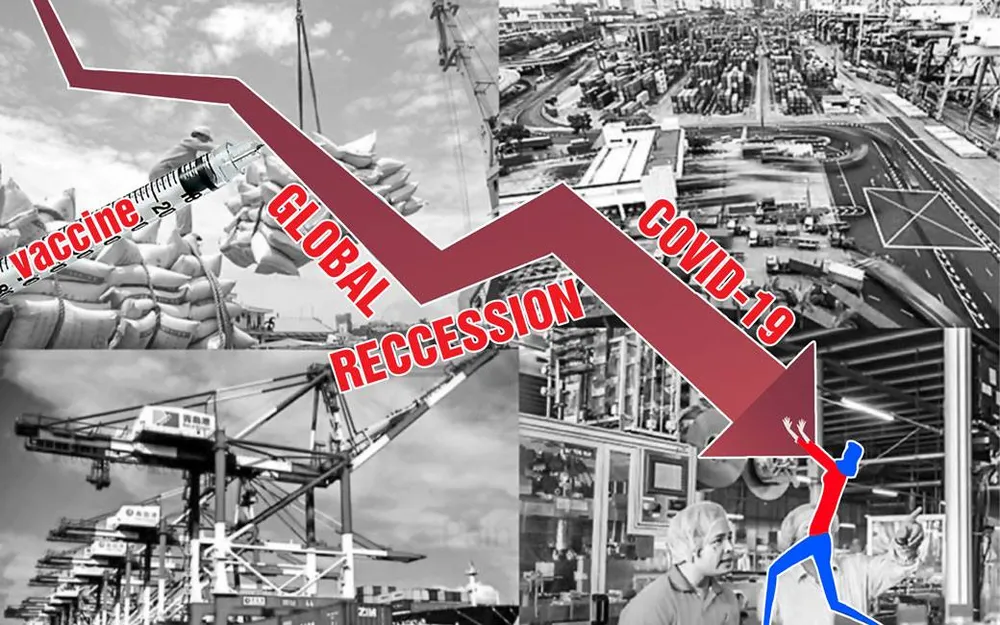
Global decline in growth
The outbreak of the Covid-19 pandemic was the main factor that caused the global GDP to decline by 3% in the first quarter of 2020. In particular, the first quarter GDP of superpowers, that are Vietnam's major economic partners, fell sharply in the US by 4.8%, in China by 6.8%, in EU by 3.5%, and in the UK by 1.6%. In China for the first time in more than 40 years, the steepest decline in growth was seen.
In this context, the growth of around 3.8% in the first quarter in Vietnam is encouraging, even though this growth discounts for factors such as the Tet Lunar New Year and the impact of ban on alcohol. In the first quarter, Vietnam felt almost no impact and countries that are Vietnam's main export markets did not suffer much. As for Vietnam's imports, even though these are limited, they are not so seriously affected because many enterprises still have provisional stocks.
Another important motivation is that the FDI in the first quarter still continued to grow. A case in point was that of Samsung Electronics Vietnam which grew well because the company moved fast and withdrew from China at a very early stage. Samsung now only has facilities in Vietnam and South Korea. Although the company is affected, it continues to contribute to Vietnam's growth rate.
A brief review of business results in the first quarter of 2020 of listed companies on the stock market show that many industries face difficulties, but on the other hand some industries are experiencing quite favorable conditions. These are the industries that directly serve disease prevention and pandemic scenarios, such as those enterprises that promptly switched to production of medical supplies and other related businesses, such as production of facial masks, online learning, e-commerce, and home delivery and courier services. Some industries also indirectly benefited from falling oil prices such as the plastic industry and nitrogenous fertilizers.
The problem became more serious in the second quarter, when Vietnam implemented wider areas for social distancing and large export markets faced more difficulties, especially for non-essential goods. In this situation, Vietnam offered unprecedented and varied economic stimulus packages, which are continually being elaborated, developed and implemented, so their effectiveness cannot yet be assessed.
Stimulus policies in global context
Methods of economic stimulation in Vietnam need to be reconsidered in their entirety for the first time in history, such as additional economic stimulus policies that will affect monetary policies between countries. Vietnam has implemented stimulus in the context of an interlacing between regional production, value chain and the global Free Trade Agreement (FTA). This value chain has a strong influence on the spread of monetary policy, especially the exchange rate, compared to the past when only two countries had relations with each other.
Another factor to consider when implementing stimulus packages is that Vietnam has been very open in economics and trade, with more openness in exchange rate policies, and financial openness far beyond the level of financial development. Therefore, the problem here must be to clearly identify the cause of economic decline in Vietnam, global recession, and not the weakness of financial institutions, or the structure of the economy.
In addition, new factors supporting growth such as investment, trade, institutional reform, are all under the influence of CPTPP, EVFTA, the Covid-19 pandemic, the US-China trade war and Southbound policy of South Korea, Taiwan and Japan, as well as the new strategy to withdraw investments from China. These factors must be fully taken into account when designing economic stimulus packages to meet demand. This will help us avoid wasting our resources. The Covid-19 pandemic may not be completely addressed globally, so we must be prepared for any eventuality in order to design appropriate strategies and policies to support growth in the long run.
The principle of stimulating demand must be at the right time, with the right dose and with the right objectives. Therefore, it is necessary to consider the impact of the Covid-19 pandemic, its level, scope, and long-term and short-term effect on each enterprise group by commodity line, industry characteristics, degree of impact and expected business performance. Ideally, these factors must be identified early and analysed fully.
Inadequacies in stimulating demand as well as not addressing problems that arise in Vietnam, show that thorough preparation is needed. However, the principle of stimulus at the right time poses certain difficulties that require quick analysis and appropriate incentives for each objective. Also, it may be necessary to set up a system of post checking and sanctions on dishonest declarations by beneficiaries of Government support, to ensure immediate and effective results from any stimulus policy. However, this is not easy to implement or foresee.
Yen Lam (recorded)




















